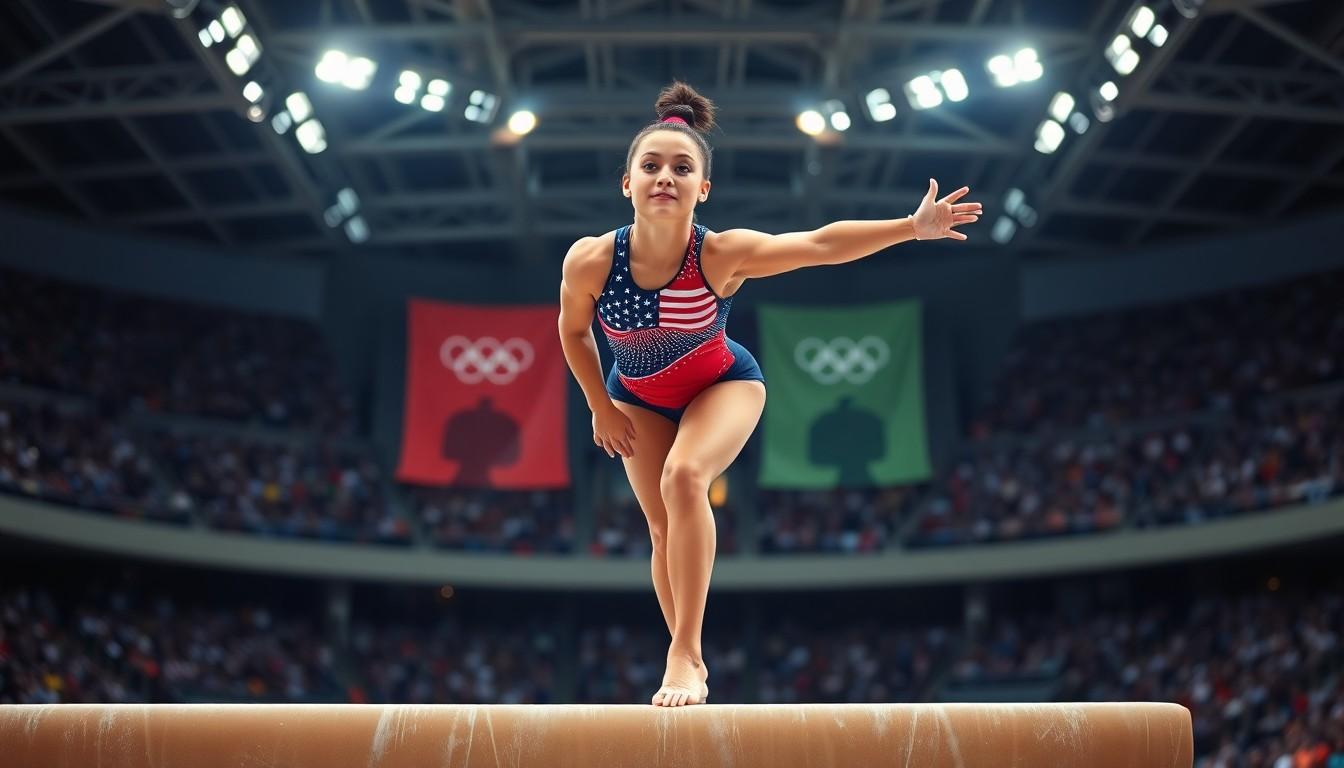Key Takeaways
- Diverse Athletic Demands: Olympic sports require a wide array of skills, including physical endurance, technical expertise, and mental toughness, making each discipline unique in its challenges.
- Physical and Mental Challenges: Athletes face both physical exhaustion and mental pressure, with factors such as cardiovascular stamina in endurance sports and focus in technical sports playing crucial roles in competition.
- Various Sport Categories: Olympic sports can be categorized into individual sports, team sports, combat sports, endurance sports, and technical sports, each presenting distinct demands on athletes.
- Expert Insights: Coaches and athletes highlight specific sports, such as gymnastics and weightlifting, as exceptionally demanding due to their combination of strength, precision, and mental focus required for success.
- Ongoing Debate: The ongoing discussion around which Olympic sport is the hardest emphasizes the subjective nature of athletic difficulty, as it varies based on individual strengths and the unique challenges presented by each sport.
When it comes to the Olympics, athletes push their bodies and minds to the limit. Each sport demands unique skills, endurance, and mental toughness, but some stand out as particularly grueling. Determining the hardest Olympic sport isn’t just about physical exertion; it involves considering the mental challenges and the level of skill required.
From the precision of gymnastics to the endurance of marathon running, every discipline has its own set of difficulties. This article dives into the debate, exploring various sports that claim the title of the hardest. By examining the demands placed on athletes, readers will gain insight into what truly makes a sport challenging at the Olympic level.
What Is The Hardest Olympic Sport
Olympic sports encompass a diverse range of disciplines, each demanding unique skills and physical endurance. Athletes compete in over 30 sports that vary in intensity, technique, and equipment requirements, showcasing extraordinary talent and dedication.
Categories of Olympic Sports
- Individual Sports
Individual athletes, such as gymnasts and swimmers, face rigorous mental and physical challenges. Each performance relies heavily on personal skill, precision, and focus.
- Team Sports
Team sports, including soccer and basketball, require coordination and strategic collaboration among players. Success depends on teamwork, communication, and collective effort.
- Combat Sports
Combat sports like judo and wrestling involve intense physical confrontation. Competitors exhibit strength, agility, and mental resilience while navigating opponents’ tactics.
- Endurance Sports
Endurance sports, such as marathon running and cycling, demand sustained physical effort over prolonged periods. Athletes train extensively to build stamina and resilience.
- Technical Sports
Technical sports, including archery and diving, emphasize precision and skill. Athletes rely on intense concentration and finely honed techniques to achieve success.
Challenges in Olympic Sports
Athletes must master various elements in their respective sports. They face physical exhaustion, mental pressure, and the need for strategic planning. The intense competition at the Olympic level pushes athletes to excel beyond normal limits, highlighting their commitment and determination.
Factors Determining Difficulty

Determining the hardest Olympic sport involves evaluating various elements that contribute to the complexity and challenges athletes face. This assessment includes both physical demands and mental toughness.
Physical Demands
Physical demands vary significantly among Olympic sports. Endurance sports, such as marathon running and cycling, require sustained cardiovascular effort, often exceeding two hours of activity. Technical sports like gymnastics and diving emphasize strength, flexibility, and precision, where athletes perform intricate routines that demand impeccable timing and control. Combat sports showcase intense physical confrontations, where competitors endure striking and grappling, testing their stamina and resilience. Additionally, team sports involve quick bursts of speed, agility, and coordination, with athletes needing to adapt their movements in real-time.
Mental Toughness
Mental toughness plays a crucial role in Olympic sports. Athletes confront immense pressure during competitions, which can influence performance. For instance, gymnasts must maintain focus amidst high-stakes environments, making split-second decisions on complex routines. Endurance athletes, such as marathon runners, often battle mental fatigue over lengthy races. The ability to strategize, remain composed under pressure, and push through discomfort contributes significantly to success. Sportsmanship, self-discipline, and resilience highlight the mental fortitude required to excel.
Comparison of Various Sports
Different Olympic sports each present unique challenges, requiring a blend of physical and mental resilience. The complexity of each sport contributes to the ongoing debate regarding which sport ranks as the hardest in the Olympic arena.
Gymnastics
Gymnastics demands extraordinary strength, flexibility, and coordination. Athletes must execute intricate routines on apparatuses such as the balance beam and the parallel bars. The intense training regimen includes multiple hours of practice daily, fostering unparalleled discipline. The pressure of competition further amplifies the mental challenges, as athletes must maintain focus while performing dangerous maneuvers in front of thousands.
Swimming
Swimming tests both physical endurance and technical skill. Events range from sprints of 50 meters to grueling 1,500 meters. Swimmers endure rigorous training schedules, often practicing in the pool several hours each day. Mental fortitude plays a vital role, as swimmers must overcome fatigue and keep pace during lengthy races. The need for precise timing and technique adds layers of difficulty to this sport.
Weightlifting
Weightlifting showcases pure strength and explosive power. Athletes compete in various weight classes, attempting to lift their maximum in both the snatch and clean and jerk. Training involves heavy lifting and strict adherence to nutrition, emphasizing the importance of physical conditioning. Mental focus is crucial; lifters face the pressure of perfect form under significant load, making every attempt a test of both physical and psychological strength.
Wrestling
Wrestling combines strength, strategy, and stamina. Athletes grapple with opponents in various styles, including freestyle and Greco-Roman. Rigorous training methods develop physical endurance and agility while emphasizing quick thinking in the heat of competition. Wrestlers must maintain composure amidst intense physical confrontations, managing the physical strain while executing strategic moves to gain an advantage.
Decathlon
Decathlon encompasses ten track and field events, testing an athlete’s versatility and endurance. Events range from sprints to long-distance running, throwing, and jumping disciplines. Preparing for this all-around challenge demands a comprehensive training program that addresses multiple physical skills. Mental resilience is necessary, as athletes compete over two days, balancing the demands of each event while maintaining peak performance.
Expert Opinions
Experts in sports science and athletics provide insights into the debate surrounding the hardest Olympic sport. They emphasize the unique challenges posed by various disciplines, combining physical exertion with mental resilience.
- Gymnastics: Coaches and former athletes highlight gymnastics as exceptionally demanding due to the combination of strength, flexibility, and precision required. The mental focus needed during complex routines under pressure makes it one of the hardest sports.
- Swimming: Professional swimmers assert that the relentless training and need for endurance in swimming set it apart. Swimmers face rigorous schedules, pushing through physical fatigue while maintaining technique and concentration.
- Weightlifting: Olympic weightlifters state that the sport demands explosive power and mental sharpness. Competitors must strategize their lifts while battling the physical strain of lifting heavy weights.
- Wrestling: Experts in wrestling point out the sport’s mixture of strength, technique, and stamina. Wrestlers endure intense physical confrontations while needing to think strategically about their moves, adding layers of complexity.
- Decathlon: Track and field coaches emphasize the decathlon as one of the most grueling events. It requires proficiency in ten different athletic disciplines, testing an athlete’s versatility and mental fortitude over two consecutive days of competition.
- Marathon Running: Endurance coaches highlight the marathon’s unique mental challenges. Runners face the dual pressures of maintaining pace over 26.2 miles, combating both physical fatigue and mental exhaustion throughout the race.
These expert opinions underline the diverse range of skills and attributes necessary for success in Olympic sports, reinforcing the idea that difficulty varies among disciplines.
Determining The Hardest Olympic Sport
Determining the hardest Olympic sport isn’t a straightforward task. Each discipline presents its own unique set of challenges that test an athlete’s physical and mental capabilities. From the precision of gymnastics to the endurance of marathon running every sport requires a different blend of skills and attributes.
The debate over which sport is the most demanding will likely continue among athletes and fans alike. Ultimately what stands out is the incredible dedication and resilience athletes demonstrate across all Olympic sports. Their commitment to excellence serves as a testament to the rigorous training and mental fortitude needed to compete at such a high level.
